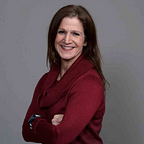How Do You Respond to Suffering?
You can play the victim, or you can transform it.
Yoga (and I mean the true meaning of yoga that includes Buddhism) is about liberation. Some yoga traditions believe in reincarnation, so this liberation is about being free from the karma of past lives. So we work through that karma best as possible in this life while trying to avoid situations that effect bad karma. But on a broader scale, it’s about liberating the soul. We all want to be free, right?
Whether we believe in reincarnation or not, many religious traditions teach us that we reap what we sow. If we have deceitful intentions in doing or saying something, we shouldn’t be surprised when we’re found out. And yes, we spend a good part of our childhood and early adulthood learning from our mistakes. We continue to aspire towards better things — and a better life — as we learn and grow.
Even along the contemplative path, even if we do our best to serve God, we’ll never be free from suffering. This is a hard thing to hear. We question God when we hear how people who’ve dedicated their lives to helping others fall upon hard times.
Bea Gaddy knew what suffering was like. Not only did she grow up during the Depression, but her abusive, alcoholic stepfather would leave her and her brother so scared that she would have to rummage…
